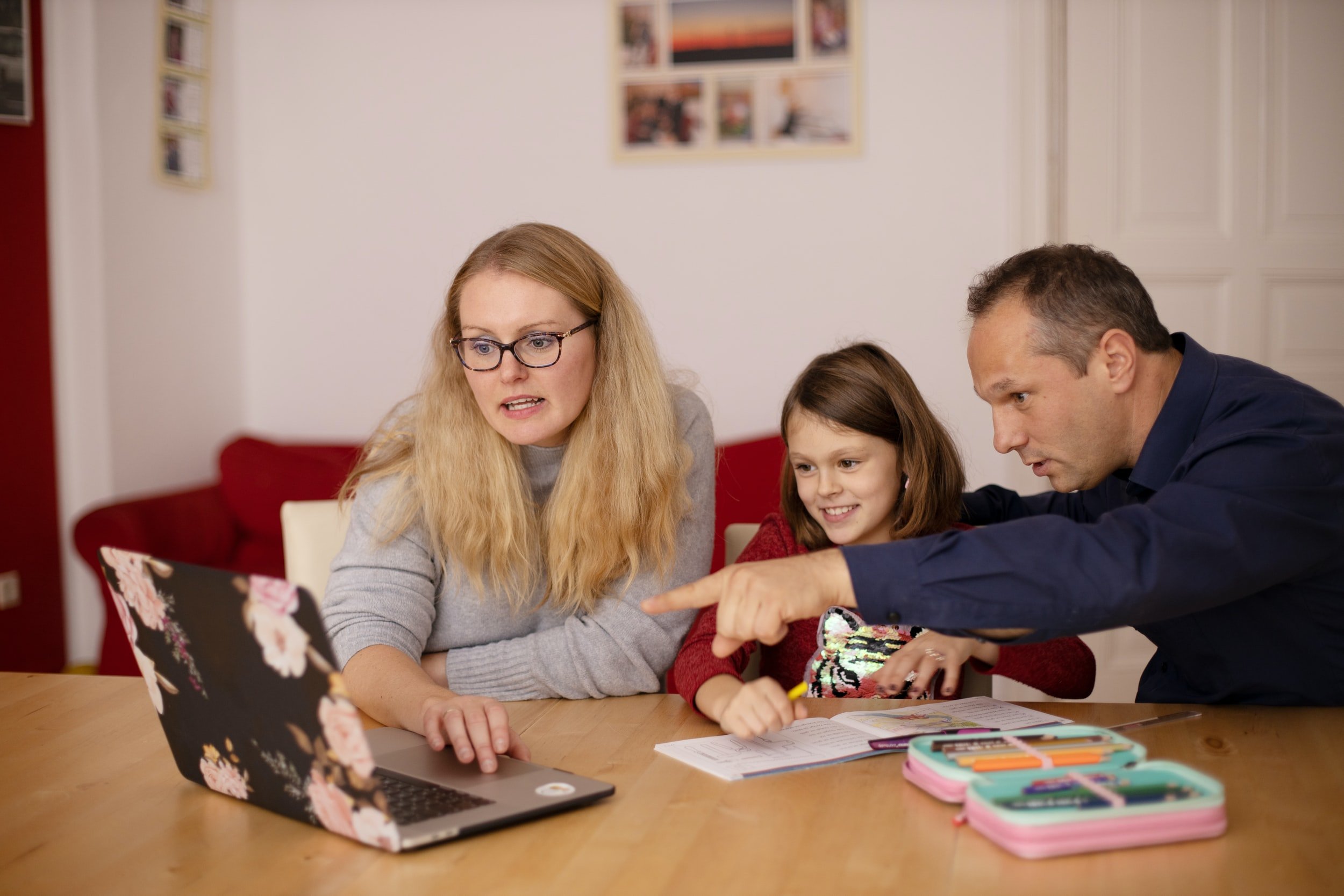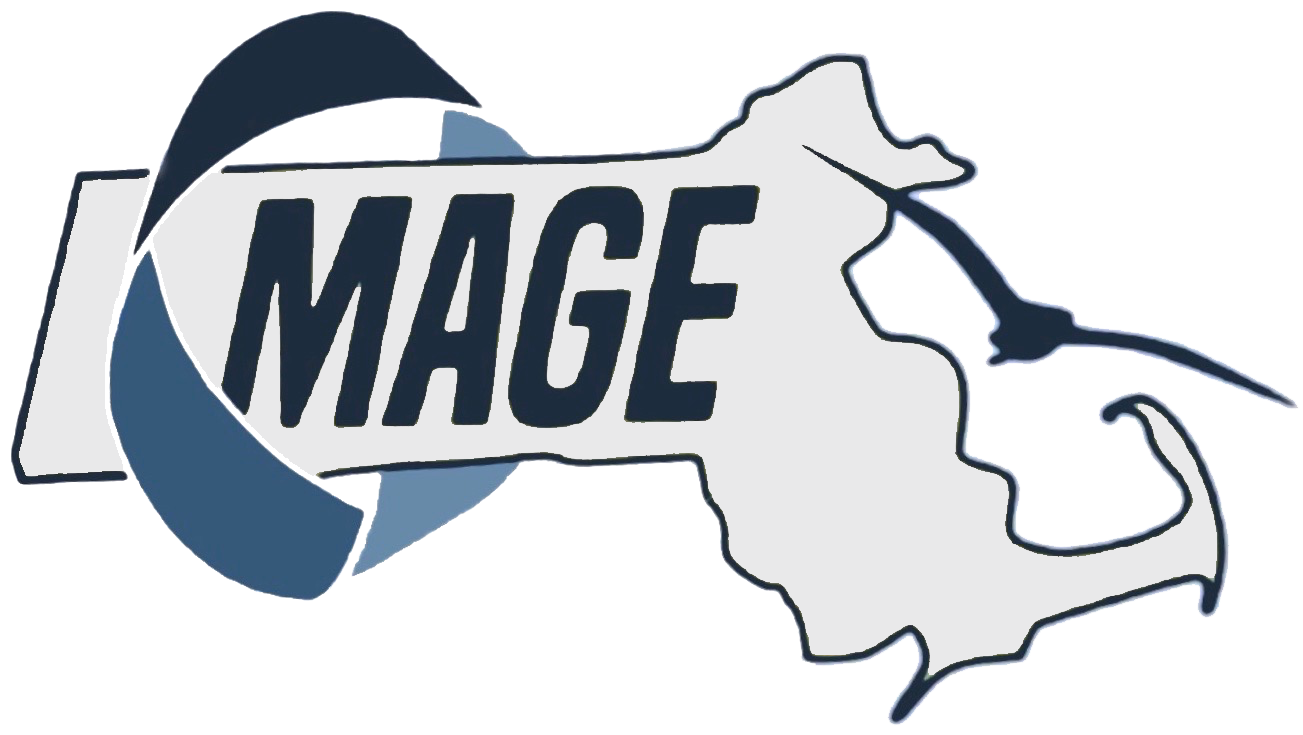
For Parents
The following resources may be helpful to you and your child's education and socio-emotional well-being. Please note that many of these resources are parent-recommended and being listed here does not convey an endorsement by MAGE.
Links will open in a new window.

Defining Giftedness
“Students, children, or youth who give evidence of high achievement capability in areas such as intellectual, creative, artistic, or leadership capacity, or in specific academic fields, and who need services and activities not ordinarily provided by the school in order to fully develop those capabilities.”
Further Reading
What is Giftedness? National Association for Gifted Children
Gifted Traits and Characteristics Davidson Institute
Differentiated Model of Giftedness and Talent by Francois Gagne
Is My Child Gifted? by MAGE
Helpful Links & Resources
-
-
-
How Can I Prepare My Child for Testing? by Aimee Yermish
Gifted Development Center: A service of the Institute for the Study of Advanced Development Denver based resource for Testing and Literature (Linda Silverman)
For a list of neuropsych professionals who have successfully worked with our community, log in to the member section
-
20 Types of Acceleration (Belin-Blank Center)
A Nation Deceived from the Acceleration Institute, University of Iowa (Belin-Blank Center)
Nation Empowered from the Acceleration Institute, University of Iowa (Belin-Blank Center)
Early Entrance to Kindergarten (Belin-Blank Center)
How to do Subject Acceleration (Belin-Blank Center)
How to find out if your child is ready for more advanced workThe Best-Kept Secret in Gifted Education: Above-Level Testing (Belin-Blank Center)
-
Alison Carr, Woburn, MA
Dr. Anya Dashevsky, Lexington, MA
Deidre Lovecky, Providence, RI
Jennifer Markow, South Hadley, MA
Randy Marles-Orabone, Boylston, MA
Dr. Mariko Sakurai, Newton , MA
Dr. Elizabeth Smith, Natick, MA
-
Acera School Winchester, MA
Athena's Advanced Academy Online
Brighton School Framingham, MA
Learning Unlimited (Splash nationally)
MIT PRIMES: Program for Research in Mathematics, Engineering, and Science for High School Students
-
Glossary of terms used in Gifted Education Michigan Association for Gifted Children
Glossary of Terms NAGC
-
Good morning, families!
I am delighted to welcome your child and your family to our gifted education community at Aspen School District. As we add this lens to your child's educational journey, it's essential to start by understanding what being "gifted" truly means- for the sake of both you and your learner. The term itself can feel like a grand declaration, as if one has received a special "gift." Many educators struggle equally with this terminology - it feels as though we are bestowing superiority upon a student simply by explaining their brain function. Let's just name it- the reality is that this identification is often stigmatized, which is unhelpful when it comes to achieving the ultimate goal of the schooling system, which is finding and capitalizing on the ways in which each child will flourish in the learning environment. While giftedness is indeed a unique and enriching attribute, it comes with its own variable set of challenges and responsibilities.
Giftedness is much more than just high academic ability. (I know some of you are nodding your heads right now... YES, I know your child may not be exceptional at reading or math! ) Giftedness is a form of neurodivergence, meaning that gifted children experience and interact with the world differently from what is typical of children their age. This difference enhances their abilities in various areas but can also present unique challenges. It's not uncommon for gifted children to experience various intensities, challenges integrating with peers, perfectionism, sensitivities, and a strong sense of justice and fairness, which all may be a part of their gifted nature. It is also very common for these students to develop a fixed mindset, and struggle when facing challenges.
Some gifted children may also have other types of neurodivergence (diagnosed or not), such as ADHD, dyslexia, Autism Spectrum Disorder, or something else, making their identification more complex. We call these students twice-exceptional or 2e. This combination of two or more coexisting realities can make their educational journey quite complex, but also incredibly rewarding. (another email forthcoming on this topic...)
I don't want to overwhelm you with resources, but can't help but provide a few unsolicited ones. I'd love every parent and educator of a gifted child to read this article, written by a gifted child, about her experience of masking her exceptionality and this one, too, which explores both the blessing and curse that is giftedness- truly the reality that exists when one finds themself at either end of any bell curve. Finally, this video does a great job illustrating the importance of a growth mindset, and giving gifted students for whom so much comes easily, the opportunity to struggle. It can be really easy to praise some of the innate ability that comes with exceptional aptitude, but if I may ask one thing of you, it's to note when you might praise effortless ability (and try to stop doing it), and instead give your child the opportunity to work hard at something- and be sure to praise that hard work.
I understand that this is just the beginning of your child's academic career, and you may have many questions. My door-and inbox-will remain open when things come up. I've decided to send out this gifted mini-series of emails in the final weeks of the school year to give you some food for thought, and tools to help you discuss with your child, before we shut the school doors for the summer.
Know that one of the main intentions of providing Ascent services is to help your child understand their brain, their exceptionalities, their challenges, and how best they can advocate for what they need- in the school setting and beyond. Thank you for your engagement and support. I look forward to partnering with you to provide a nurturing and stimulating environment for your gifted child.
https://www.youtube.com/watch?v=IIrvZ4fwBKU
Mini Series #2:
Good morning, caregivers!
As we continue building a shared understanding of giftedness, I wanted to take a moment to spotlight a topic that’s especially important for many families, and valuable food for thought for all families of gifted children: twice-exceptionality, often shortened to 2e.
You may or may not find that this topic resonates directly with your experience with your child, but many gifted children fall somewhere along a spectrum of dual exceptionality, even without a formal diagnosis. In fact, it’s not uncommon for one form of neurodivergence (like giftedness) to show up alongside others, whether or not they’ve been officially identified. In any case, knowledge is power and I hope you learn something new today!
So–what is 2e? A twice-exceptional child is someone who is both gifted and has one or more learning differences or disabilities. These might include ADHD, dyslexia, sensory processing challenges, processing speed, or emotional and behavioral struggles. Sometimes the disability masks the exceptionality; other times, the exceptionality masks the disability. In either case, these overlapping traits can make a child’s needs harder to identify, and easier to misunderstand.
To be clear: your child is not identified as twice-exceptional here at ASD unless they have an active IEP (Individualized Education Plan) or 504 Plan in place. If your child does meet those criteria, I noted their 2e status in the gifted identification letter you received. This email is simply to offer helpful context because, even without a formal identification, some of this may resonate.
Understanding 2e is helpful not only for identifying and supporting these gifted learners, but also for reframing how we view challenge and potential. A 2e student might be brilliant at problem-solving, but struggle to complete assignments. They might be deeply empathetic, but overwhelmed by social situations. They may excel in numerical reasoning, but find reading or writing exceptionally difficult or exhausting. Recognizing this complexity helps us support their growth in meaningful ways.
Here are two ways you can support your gifted learner, whether or not they are 2e:
1. Be their advocate as you encourage them to be their own. When you understand their strengths and challenges, you’re better able to help them navigate school. When they understand their strengths and challenges, they’re better able to navigate all of life.
2. Normalize both their strengths and their struggles. Help your child understand that their brain is unique, and that both their abilities and challenges are real, valid, and equally important. Try not to value one part of them over another. This kind of openness nurtures self-understanding, a growth mindset, and resilience.
If you'd like to explore more, 2eNews.com is a great resource. And whether or not your child is twice-exceptional, I can’t recommend SENGifted.org (Supporting the Emotional Needs of the Gifted) enough, this won’t be my last plug for them!
Mini Series #3:
Phenomenal caregivers! Happy end-of-the-school-year!
As we round out this little series, I’d like to shift focus from “what giftedness is” to what we can do with that knowledge. One of the goals of gifted programming in Aspen, and of the Ascent program more broadly, is to help students develop self-awareness about how they learn, what they need, and how they can confidently advocate for themselves in both academic and social settings.
Gifted children are often deeply reflective and curious by nature, but they don’t always have the tools or language to explain their experiences, especially when those experiences feel out of sync with peers. A child might not realize that their need to “go deep” on a topic, their frustration with repetition, or their overwhelm in noisy environments is actually connected to how their brain is wired. That’s where we come in, school, home, and GT services working together to help your child name what they need, and why.
This self-awareness is the foundation of self-advocacy. And we believe that self-advocacy is not only a life skill, but also a core equity practice: it ensures that gifted learners can access what they need to thrive, even in systems not always designed for them.
As we work next year to build your child’s goals through their Advanced Learning Plan (ALP), they will reflect on both their strengths and their needs. These conversations are not just academic—they are identity-building. Your child will begin learning to ask:
What excites me? What frustrates me? What helps me stay engaged or regulated? What kind of support helps me grow?
These aren’t always easy questions, even for adults. But over time, they create space for students to show up fully as themselves in the classroom and beyond.
If you’d like a way to start this reflection at home, consider asking your child, “What’s something you wish teachers understood about how your brain works?” or, if you’re feeling bold, “What’s something you wish I understood about how your brain works?” You might be surprised by what they share.
Thank you again for being on this journey with us. I hope this series has helped you feel a little more grounded in what it means to have a gifted child, and what it means to raise one.
Have an incredible summer!
Additional Resources
HOW TO WORK WITH YOUR SCHOOL TO GET YOUR CHILD THE EDUCATION THEY NEED A Venn Diagram for School Success
Twice Exceptional: What it is and what you can do for your children 2019, Dr. M.G. Stewart
Get Support
MAGE holds weekly office hours open to the public each Thursday from 9:30-10:30am Eastern via Zoom. Drop in to chat with a MAGE expert in this open group consult.
Need more help? We have several consultants that are available and have successfully worked with our members over many years. Ask us for a recommendation!
Fees apply. Members receive a discounted rate.
This service is available to parents, guardians, educators and schools.
Get Involved
Massachusetts is in the bottom few states in the nation for gifted education. Our brightest students need your help.
Why gifted may not be what you think: Michelle Barmazel
“Gifted Students Don’t Need Help; They’ll Do Fine On Their Own”
There are many myths like these that prevent gifted students from getting the support and resources they need. NAGC compiled a list of the most prevalent myths in gifted education with evidence rebutting each of them at nagc.org/myths-about-gifted-students →
“I am grateful for groups like this one. It makes me feel less alone ... I appreciate having places on this journey where people get it.”
“MAGE, the Facebook community...have been incredibly helpful to me in both understanding my gifted children’s unique profiles and determining how best to support each of them. We are very lucky to have this community of families and specialists in Massachusetts!”

Webinars
Access member-only webinars from our conference archive and professional development opportunities.

